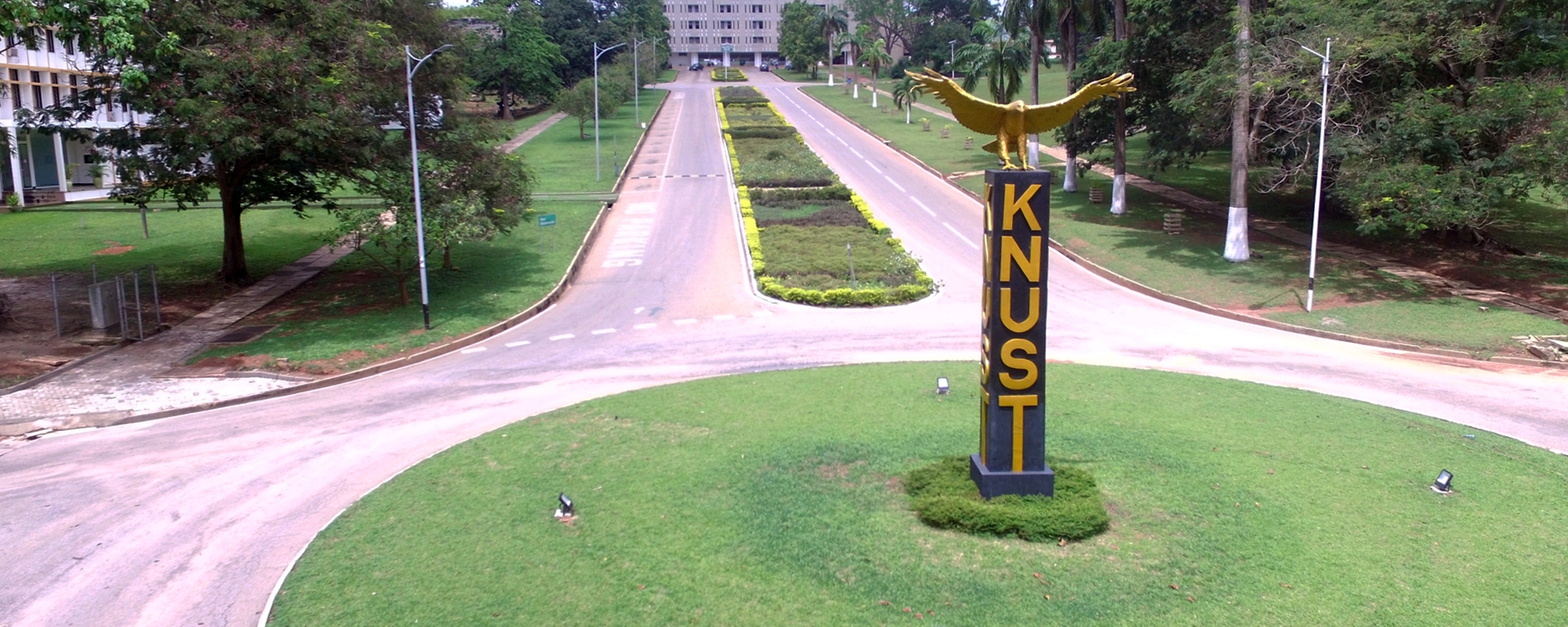Overview
The provision of relevant information as a feedforward and feedback mechanism in the design and implementation of interventions that improve human wellbeing has always been critical. Planning, Monitoring and Evaluation (PME) is the process to secure this relevant information to improve the efficiency and effectiveness of these interventions. In view of the importance of this activity, almost all agencies within the public and private sectors of the economy have PME Units. There is, therefore, the need to shore up the level of expertise of the personnel that man these PME Units. Kwame Nkrumah University of Science and Technology (KNUST), Kumasi as part of our strategic mandate is, thus, mounting a 12-month programme in PME to train experts at the higher level to contribute to the development of the nation.
Modules and courses
Mode of course delivery
The programme is offered through distance education, a learning oriented system allowing greater flexibility in learning while students continue with their regular professional work. The programme is offered in a mixed mode format. The approach uses print and electronic media in order to be responsive to the needs of the learner and also maximize the use of technology in course delivery.
At the heart of the programme is excellent online learning materials developed by capable and competent resource persons from KNUST and other recognized institutions.
Academic Support Systems/Services
Limited face-to-face facilitated sessions are provided at all the Learning Centres. These sessions are supported by print and electronic materials, and local learning facilitators who also support and direct students as they work through the resources provided.
The Centres provide learning support to students living in different parts of the country, thus reducing travel expenses.
Learning centres
Head of department
Exam officer
Programme coordinator
ENTRY REQUIREMENTS FOR THE PROGRAMME
To gain admission to the MSc/MPhil Planning, Monitoring and Evaluation Programme, applicants must meet the following entry requirements: A Bachelor’s Degree with Second Class (Lower Division), or better, in any discipline from a recognized university, plus a minimum of one year working experience (including national service); Applicants whose working language is not English must show proficiency in both spoken and written English; and Passing an interview.

How to Apply
Pursuing an academic programme is an important step toward your future — and we're here to help
PROGRAMME JUSTIFICATION
There is growing demand on technocrats who handle development programmes and projects to come up with more efficient ways of steering the processes involved in the planning, implementation and management of development interventions; identifying and addressing problems that crop up before, during and after implementation of such interventions; assessing the outcomes and impacts of programmes and projects; and providing useful and timely information for policy makers. These trends have culminated in a steady shift towards specialisation and the emergence of new fields of training to tackle various aspects of development interventions, including project management, monitoring and evaluation, procurement management, risk management, among others. In recent times, the government, development partners and development-oriented Non-Governmental Organisations (NGOs) are increasingly putting emphasis on Monitoring and Evaluation (M&E) as part of their quest for efficiency in the formulation, implementation and management of their policies, programmes and projects. Consequently, it becomes necessary for this Programme to cater for this development gap.


